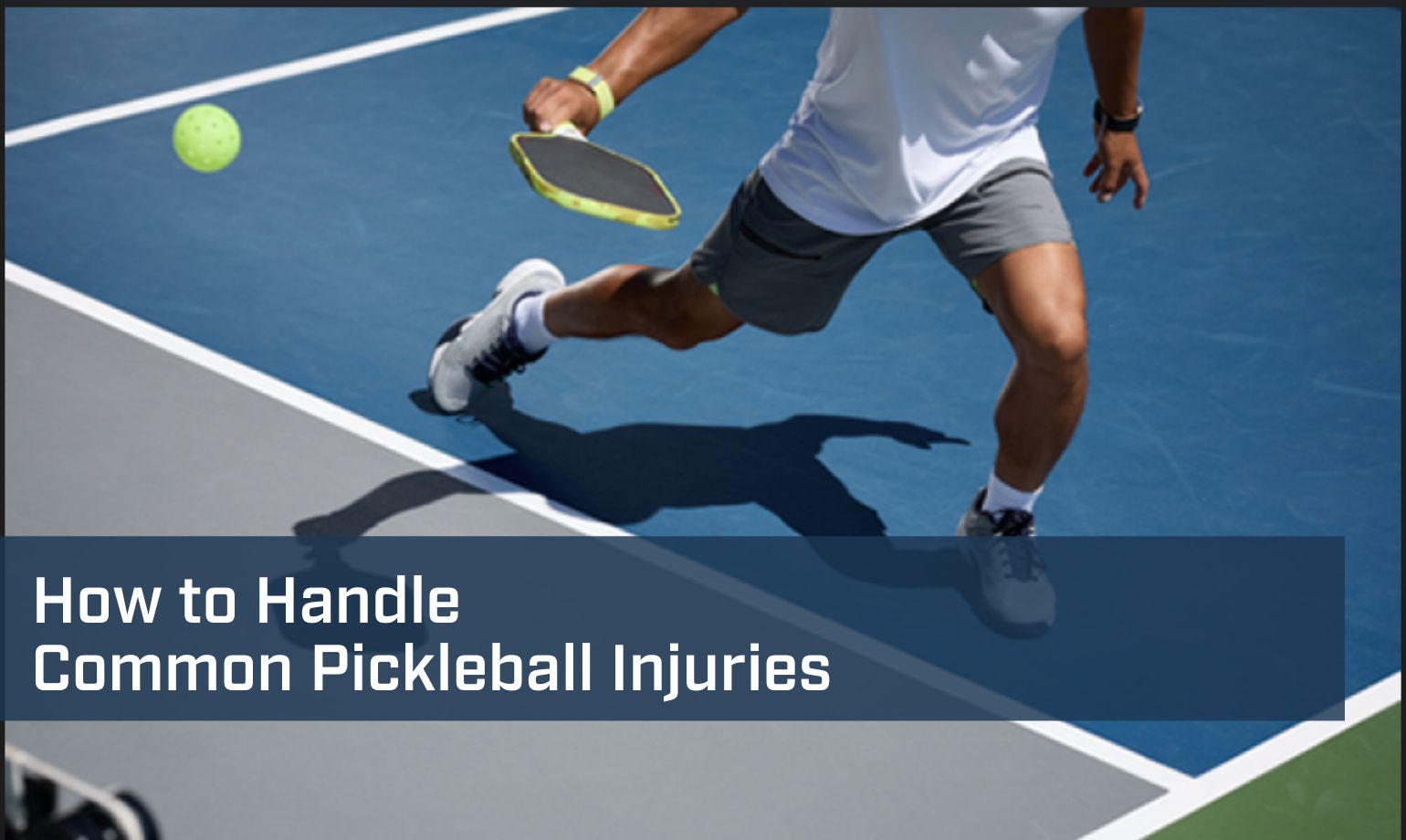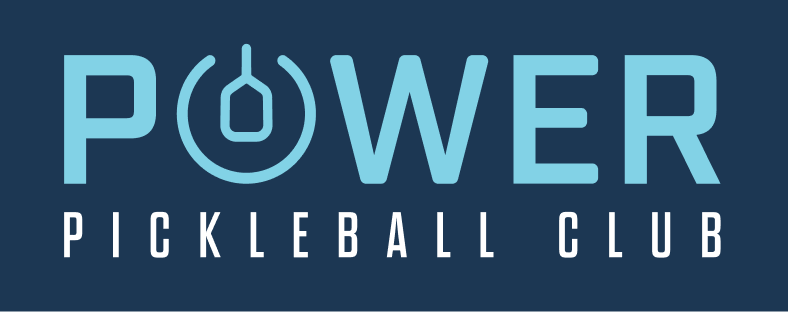
How to Handle Common Pickleball Injuries
Pickleball is an addictive mix of fun, competition, and fitness, but even the best players occasionally find themselves nursing an injury instead of smashing that perfect serve. At Power Pickleball Club in Spokane Valley, Washington, we’re here to keep you in the game, even when you’ve taken an unfortunate twist or tumble. Here’s a guide to identifying and treating common pickleball injuries, plus the latest approaches to recovery using RICE and MEAT protocols.
Pickleball Elbow
Feeling an ache in your elbow after a particularly intense game? That’s likely “pickleball elbow,” caused by repetitive motion and overuse of your forearm muscles. Treatment starts with rest and ice to calm inflammation. Anti-inflammatory medication can help ease pain, and bracing your elbow during games can prevent further aggravation.
If the pain persists, try physical therapy to strengthen those muscles. And don’t forget to ease back into play slowly; no one’s giving out medals for playing through pain!
Achilles Tendon Injuries
A sharp pain in your heel or calf might signal an Achilles tendon strain or, worse, a tear. For minor injuries, stop playing immediately and treat the area with rest, ice, and compression. Elevating your leg can help reduce swelling. Severe pain or inability to walk? That’s a sign to consult a medical professional right away.
Healing an Achilles injury can take time, so be patient and avoid rushing back to the court. When you’re ready, gradual stretching and strengthening exercises will be your best friends.
Sprains and Strains
Twisting an ankle mid-game or pulling a muscle while lunging for that epic return can lead to sprains and strains. These injuries are incredibly common and usually not serious, but they do require proper care. Ice the area for 15–20 minutes several times a day, wrap it with a compression bandage, and elevate it to reduce swelling.
Is the pain still lingering after a week? Consider physical therapy or chiropractic care to aid your recovery.
Shoulder Overuse Injuries
Shoulder pain from overuse or tendonitis can make overhead shots feel like a Herculean task. Rest is essential to give your tendons time to recover. Apply ice for the first 48 hours, then switch to heat to improve circulation. Gentle stretching and range-of-motion exercises will keep stiffness at bay.
Once the pain subsides, strengthening exercises, like resistance band training, can help rebuild shoulder stability and prevent future issues. Ideally, you should have a PT review your mechanics when swinging overhead to avoid labrum or rotator cuff injuries.
Low Back Pain
Low back pain is a common complaint in pickleball, especially if you’re twisting too much or neglecting your posture during play. Treating this often involves a mix of ice to bring down inflammation and heat to relax tight muscles. Alternating the two can work wonders.
For longer-term relief, a physical therapist can guide you through exercises to strengthen your core and support your back. Focus on improving your hip mobility to take stress off of the spine.
Modern Treatment Approaches: RICE vs. MEAT
Injury treatment has come a long way. While RICE (Rest, Ice, Compression, Elevation) has been the gold standard for years, the MEAT protocol (Movement, Exercise, Analgesics, Treatment) adds an updated approach with the goal of restoring full function more quickly.
The RICE Protocol
RICE (Rest, Ice, Compression, Elevation) is the go-to protocol for a fresh injury:
Rest the injured area to prevent further damage
Ice for 15-20 minutes every 2-3 hours to reduce swelling
Compress with an elastic bandage to minimize swelling
Elevate the injured area above your heart when possible
RICE is most effective in the first 24-48 hours after an acute injury, helping to reduce inflammation and pain during the initial healing phase.
The MEAT Protocol
More recent research suggests that after the initial acute phase, the MEAT protocol (Movement, Exercise, Analgesics, Treatment) can promote better long-term healing:
Movement: Gentle, controlled movement helps maintain range of motion
Exercise: Gradual progressive exercises strengthen the injured area
Analgesics: Over-the-counter pain relief when needed
Treatment: Appropriate therapeutic interventions like massage or physical therapy
The key is knowing when to transition from RICE to MEAT. Generally, after the initial swelling and acute pain phase (24-48 hours), beginning gentle movement and appropriate exercises can promote better healing and prevent muscle atrophy.
Prevention is Better Than Treatment
The best way to handle pickleball injuries, however, is to prevent them in the first place. Here’s your game plan:
Warm up effectively: spend at least 10 minutes doing dynamic stretches and light cardio before hitting the courts. Cold muscles are injury-prone muscles!
Incorporate resistance training: experts recommend active players engage in resistance training 3 times a week to prevent strains.
Work on your technique: many injuries stem from poor form. Consider signing up for lessons from a certified instructor to ensure you’re moving smoothly and effectively.
Invest in proper equipment: wear court shoes designed for lateral movement, and make sure your paddle grip size matches your hand.
Listen to your body: if something doesn’t feel right, take a break. Playing through pain is a recipe for longer-term problems.
When to See a Healthcare Provider
While minor aches and pains might resolve with home care, certain symptoms warrant professional attention:
Severe pain or swelling
Inability to bear weight or move the affected area normally
Pain that persists for more than a few days despite following RICE and MEAT protocols
Any “popping” sound accompanied by pain
Recurring injuries in the same area
Seeing a healthcare professional when engaging in a new exercise regimen can also help you prevent injuries before they occur. Consider consulting your doctor for advice as you begin your pickleball journey.
Welcome Our New On-Site Physical Therapist
Speaking of professional attention, we’re thrilled to welcome Ryan Maynes and his expert wellness team to Power Pickleball Club! Ryan, a highly skilled physical therapist and wellness professional, brings years of experience in helping athletes stay strong, recover quickly, and perform at their best. His on-site practice will offer physical therapy, massage therapy, and personal training tailored specifically for pickleball enthusiasts. Whether you’re recovering from an injury, looking to improve your mobility, or simply want to feel your best on and off the court, Ryan’s personalized approach has you covered.
The Road to Recovery
Remember that recovery isn’t just about getting back to playing; it’s about returning stronger and more resilient than before. By combining the right treatment protocols with proper rehabilitation exercises, you can build strength and flexibility that may help prevent future injuries.
Don’t let the fear of injury keep you off the courts! With proper prevention strategies and appropriate treatment approaches when problems arise, you can stay in the game and keep the pickleball mojo going. Taking care of your body and getting proper treatment for injuries helps you maintain your ability to play the sport you love far into the future.

